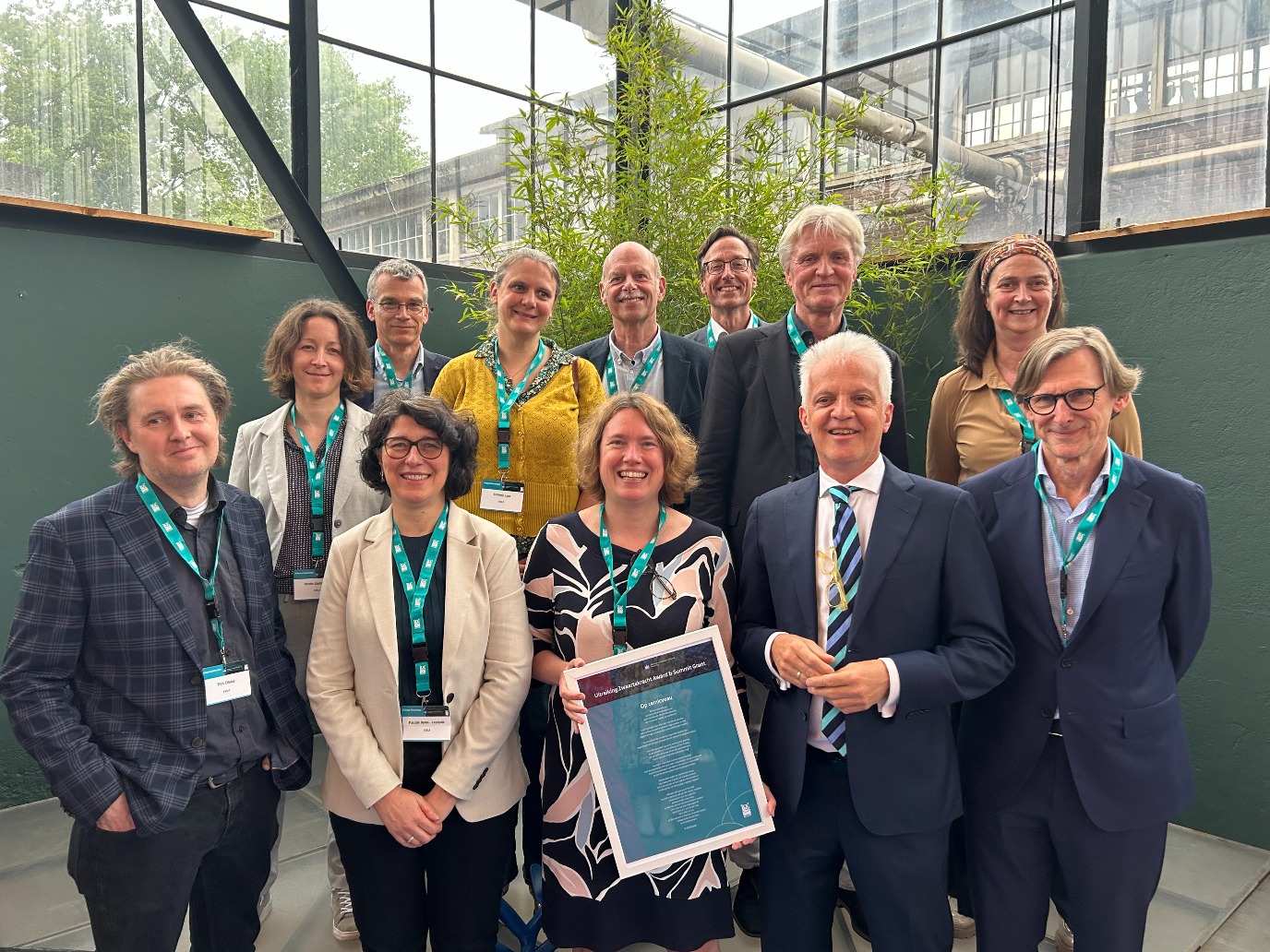NWO Summitsubsidie voor onderzoek naar moleculaire basis van leven
Onderzoekers van het Groningen Biomolecular Sciences and Biotechnology Institute van de Faculty of Science and Engineering (RUG) zijn partner in een onderzoeksteam dat een NWO Summitsubsidie van 40 miljoen euro ontvangt voor onderzoek op het grensvlak van de chemie en biologie. Het multidisciplinaire team, onder leiding van de TU Delft, gaat onderzoeken of het mogelijk is levende cellen te maken van levenloze moleculen. Hierbij gaan ze voor het eerst gebruik maken van laboratorium-evolutie en kunstmatige intelligentie voor de engineering van complexe systemen.
De Summitsubsidie is een eenmalige, tienjarige financiering voor Nederlandse topwetenschappers en is een initiatief van demissionair minister Dijkgraaf van Onderwijs, Cultuur en Wetenschap. Prof. dr. Bert Poolman is vanuit de RUG verantwoordelijk voor een van de vijf werkprogramma’s. Voor de uitvoering ontvangt de RUG voor de eerst vijf jaar ongeveer 4 miljoen euro.

Inzicht in basis van leven
Met het tienjarige onderzoeksprogramma ‘Evolving life from non-life’ (EVOLF) richt het onderzoeksteam zich op de essentiële vraag van het bestaan: wat is het leven? De onderzoekers proberen vanuit levenloze biomoleculen een levende synthetische cel met de kerneigenschappen van leven te bouwen. Poolman: 'Dit is een van de grootste uitdagingen in de biomoleculaire wetenschappen en technologie. Het bouwen van een synthetische cel zal ongekende inzichten geven in de moleculaire basis van biologisch leven.'
Nieuwe benadering
Deze aanpak bouwt voort op het eerdere pionierende werk in biofysica en biochemie van de betrokken onderzoekers. Nu kunnen ze verder, met een geheel nieuwe benadering die gebruik gaat maken van kunstmatige intelligentie en gerichte laboratorium-evolutie om het bouwen van synthetische cellen te versnellen. Naast natuurkundigen, biologen, chemici en ingenieurs, bestaat het team uit filosofen en ethici. Samen stellen ze ook ethische richtlijnen op voor verantwoorde menselijke controle over synthetisch leven.
Poolman: ‘Door deze subsidie kunnen we aan vragen blijven werken die alleen in gezamenlijkheid opgelost kunnen worden. Het stelt ons in staat onze internationale positie langdurig te versterken en een nieuwe generatie onderzoekers op te leiden.’
Consortiumpartners
Het consortium bestaat uit wetenschappers van de TU Delft, AMOLF, Rijksuniversiteit Groningen, Radboud Universiteit, Wageningen University & Research, Hubrecht Instituut en VU. Het Groningse team bestaat uit de groepen van Prof. dr. Dirk Slotboom, Prof. Matthias Heinemann, Dr. Julia Kamenz, Prof. dr. Siewert Marrink en Prof. dr. Bert Poolman.
Lees meer:
Meer nieuws
-
17 februari 2026
De lange zoektocht naar nieuwe fysica
-
10 februari 2026
Waarom slechts een klein aantal planeten geschikt is voor leven
